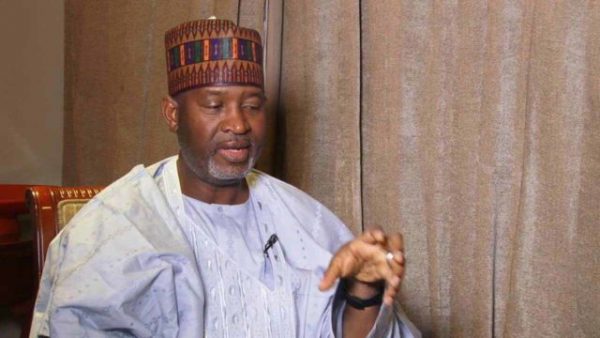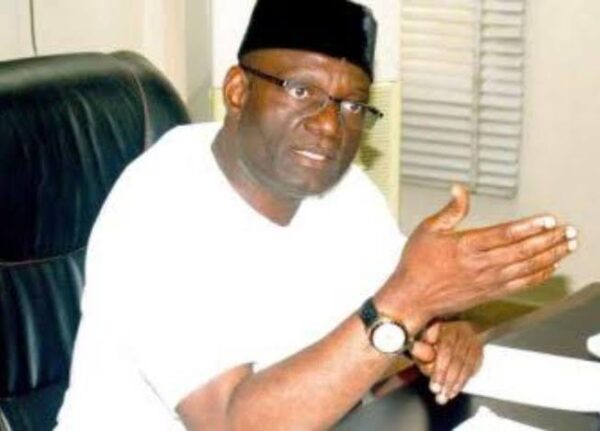Airline operators uneasy over new national carrier

• Worry over unfair competition
• Fears are baseless, says aviation expert
The proposed take-off of a new national carrier in December is unsettling airline operators, with many fearing their investments and operations may crash.
They argued that the move would create unfair competition, violate the deregulation policy of the air travel sector, and jeopardise government’s Ease of Doing Business agenda.
While some urged the government to stick to an earlier plan for a flag carrier in a level playing field, others like the Airline Operators of Nigeria (AON) sought clarification on whether the new airline would be a national or flag carrier.
The Minister of State for Aviation, Hadi Sirika, had, at a recent meeting in Abuja, disclosed that the national carrier would commence December 24, 2018 replacing the defunct Nigeria Airways liquidated in 2004, and resolve capacity and efficiency issues on local, regional and international routes.
An airline operator told The Guardian on condition of anonymity that although it is fashionable to have a national carrier on international routes, “it will kill private airlines already operating on the routes.”
He said: “The government invited us into the industry in the 80s on the ground that it was tired of operating an airline. Many of us invested in it despite the harsh operating environment, only to start hearing now that government is coming up with its own airline again. That is why a lot of us are uncomfortable with the whole arrangement.
“The question is, how would any airline that pays at least 37 sundry charges and taxes compete with a national carrier that pays none? And yet, you expect the private operator to be happy? This is a capital intensive sector that government should never joke with.”
AON Chairman, Capt. Nogie Meggison, said the association is at a loss about the relevance of a national carrier at this stage of the country’s history.
He said while the operators are not opposed to the government providing a fair and favourable business environment for the establishment of a private sector-driven flag carrier, “the idea of using tax payers’ money to float a national carrier in 2018 is not only counterproductive, but also inimical to the overall interests of the present corp of private entrepreneurs.”
A national carrier would distort the current market and constitute a drainpipe to government’s treasury, he said, urging the authorities to clarify whether the plan is for job creation or profitmaking, and unfold steps being taken for its establishment.
“This model is no longer practicable worldwide. In the 70s, 80 per cent of the airlines in Europe were government-owned. Today, 98 per cent of the airlines have been privatised,” Meggison added.
The Managing Director/Chief Executive Officer of Afrijet Airlines, Mohammad Tukur, said operators already have the assurance that the new plan will operate within the confines of a flag carrier.
“They have made it clear to us that they are not reviving the Nigeria Airways that will not be paying landing and packing charges, among others, but a flag carrier with adequate capacity, so that operators will have nothing to lose.
“Aviation, today, is so huge that one person cannot do it alone. Nigeria needs a very strong carrier. I urge the government to stick to this plan. If we are able to succeed with this, it will create a lot of new jobs and improve the economy for all,” said Tukur.
But some industry stakeholders disagreed with the operators.
The Secretary General of the Aviation Safety Round-table Initiative, Group Capt. John Ojikutu (rtd), said AON members should fear no competition from the national carrier, given that the defunct Nigeria Airways operated and even competed with other private carriers in the 80s and 90s.
“Were Okada, Kabo, ADC, Gas, Chanchangi, Harka, TRIAX and so on, not flying alongside Nigeria Airways in the 80s and 90s? Were there complaints of marginalisation?
“The present crop of domestic airlines are spoilt brats who have depended on government largesse for too long and have not prepared themselves sufficiently for the present type of governance in recession,” said Ojikutu.
He said it is clear the current government does not want to go the way of its predecessors, “hence, its plan to concession the airports. A national carrier is also to safeguard the market from other foreign carriers, and some of us are in agreement with them.”
He urged the government not to “put its hand in the airline, but make it a true national carrier. Let them get technical partners from outside to invest a minimum of 40 per cent equity. That is why they are talking to Boeing and will soon talk to Airbus to come and invest, while Nigerians will take the remaining 60 per cent.”
Ojikutu added: “If the aircraft manufacturers bring aircraft today and government goes to stock exchange, Nigerians will come out to invest up to 50 per cent. The remaining 10 per cent can then be for the federal and state governments. That is when we will have a true national carrier.”






